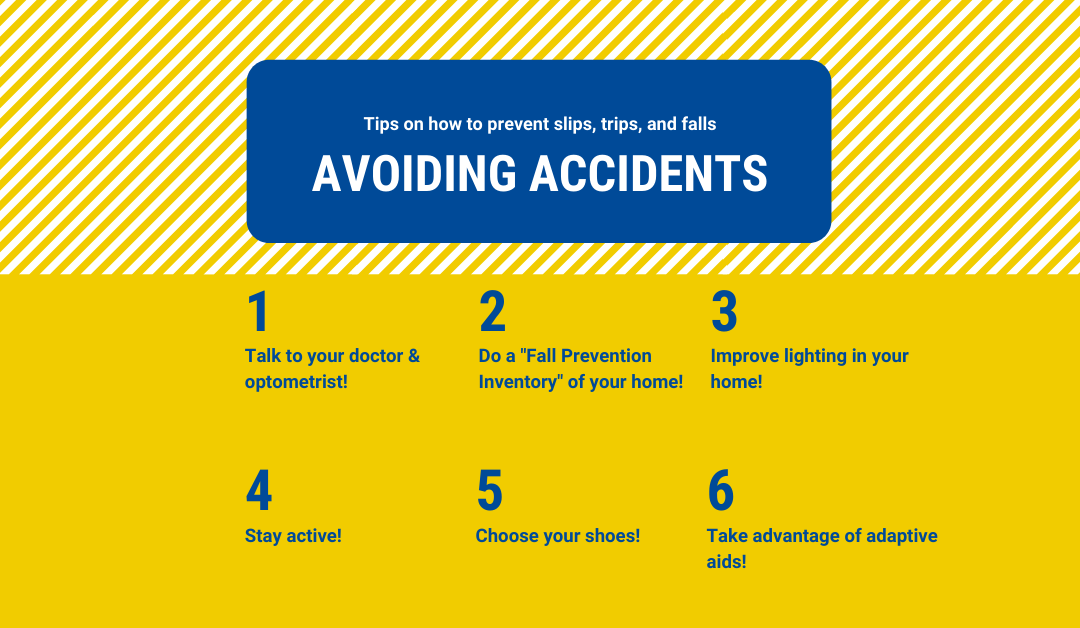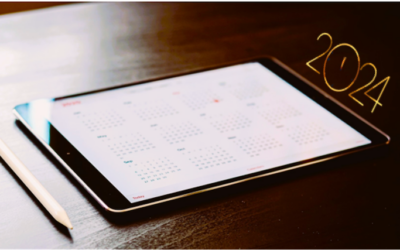We’ve all done it. Lost our balance, tripped over something on the ground, missed a step… falls are no fun. They’re also a significant cause of injury. As we get older, the risk of falling and its associated potential for injury increases. In older adults, this often leads to a loss of independence and a significant, often unwanted, change in lifestyle.
It doesn’t have to be this way! Here are some preventative steps you can take to reduce your risk of falling.
- Make an appointment with your doctor and your optometrist. Eyesight changes or eyeglass prescriptions that are not up to date can contribute to falling. Make sure you and your doctor discuss any and all medications you are taking. Some side effects like dizziness or sleepiness can affect your ability to stay balanced. Your doctor can also assess any medical conditions that may contribute to balance issues. Discuss any previous falls you’ve had, even the “saves” where you didn’t completely fall.
- Take a “fall inventory” of your home, and remove or fix any tripping hazards. Are there any dark areas in your home? Try and improve the lighting there so you are better able to avoid anything that may cause you to fall.
- Stay active! Exercise makes you stronger, and less prone to falling. Find activities you enjoy, and try to do them every day. Some great options include strength/resistance training with bands, weights, or even your own body weight. Adapt your exercise to your ability, water workouts, swimming, walking, biking are all good options to improve your strength and therefore, your balance. Other good options for helping your balance include yoga and tai chi.
- Take good care of your feet. Try to choose good, well fitting footwear. In the winter time, take advantage of available anti-slip technology for your footwear, such as micro spikes to make your walk safer.
- Make use of any adaptive or mobility aids that are available to you.
Previous Blog Posts
Mastering Your Future: A Proactive Guide To Achieving Your 2024 Goals
Successfully accomplishing any goal requires strategic planning, and the same applies to your...
Happy Heritage Day
We will be closed on Monday, August 7th for the Heritage Day holiday. We will re-open at 7:00 am...
Holiday Hours
Our 2022 Holiday Hours Are: December 23 - 10:00 am - 2:00 pm December 24 - December 27 - Closed...





0 Comments